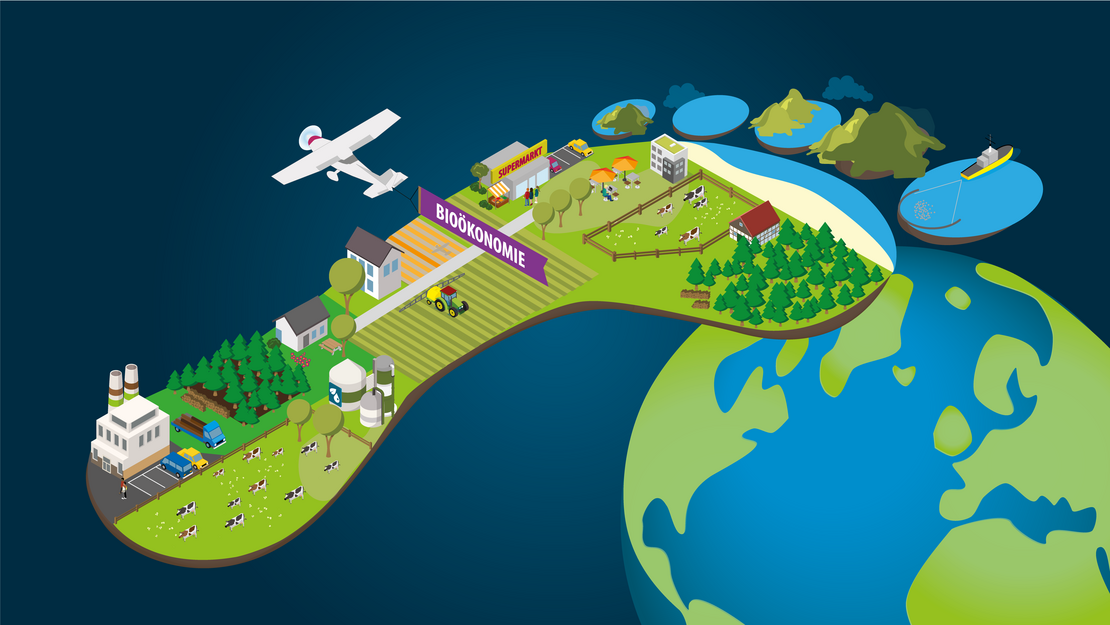This page contains automatically translated content.
A hub for bioeconomy monitoring
 Image: Project Management Jülich.
Image: Project Management Jülich.Bioeconomy is not sustainable per se, but must be designed accordingly. The SYMOBIO 2.0 project, coordinated by the Center for Environmental Systems Research (CESR) at the University of Kassel, shows where the problems of the German bioeconomy lie and what should be improved. In doing so, the researchers from the participating institutes are not only looking at Germany, but are taking a global perspective.
In order to bundle all information on the monitoring of the bioeconomy, a central platform for bioeconomy monitoring is being established in the project. "SYMOBIO is to become the hub for monitoring the German bioeconomy. We prepare the data and core indicators in a clear way, evaluate them and provide links to further information," says Prof. Dr. Stefan Bringezu, the project leader and Professor of Sustainable Resource Management at the University of Kassel.
Getting relevant messages across
He says it is important for the research project to clearly communicate the policy-relevant findings. "We need to go beyond the level of a mere research overview and make statements that inform about the performance of the bioeconomy and the requirements in terms of sustainability," emphasizes Prof. Bringezu, who has been teaching at Kassel since 2011.
For the analysis, the research team uses methods such as footprint analyses, remote sensing, stakeholder surveys, case studies, model simulations and patent analyses, so that a holistic picture of the bioeconomy emerges. SYMOBIO 2.0 specifies and extends the results of the previous project, which appeared in the pilot report(symobio.de/results). It is funded by the German Federal Ministry of Education and Research and will run until December 2024.
Contact:
Verena Pommerenke
University of Kassel
Press & Public Relations for SYMOBIO 2.0
verena.pommerenke[at]uni-kassel[dot]de
Background:
SYMOBIO 2.0 is a collaboration of the following institutes:
Center for Environmental Systems Research (CESR) - cesr.de
Kassel Institute for Sustainability, uni-kassel.de
Department of Grassland and Renewable Resources (GNR), uni-kassel.de/go/gnr
Helmholtz Centre for Environmental Research (UFZ) - ufz.de
German Biomass Research Centre (DBFZ) - dbfz.de
Gesellschaft für Wirtschaftliche Strukturforschung (GWS) - gws-os.com
Öko-Institut - oeko.de
German Center for Integrative Biodiversity Research (iDiv) - idiv.de
GRAS Global Risk Assessment Services - gras-system.org
ifeu - Institute for Energy and Environmental Research - ifeu.de
Fraunhofer Institute for Systems and Innovation Research (ISI) - isi.fraunhofer.de